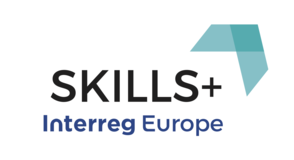

6) Tasos Sidiropoulos, Director of Programs' Department, Regional Development Agency of West Macedonia - ANKO (Greece)

1. Was it the first time for you to participate in a peer review?
Actually it was my second participation in peer review procedure and I think that each one had its own features depended on the special thematic objective and the participants as well.
SKILLS+ experience was extremely fruitful regarding project’s interesting topic of “Supporting knowledge capacity in ICT among SMEs to engage in growth and innovation”.
The exchange of best practices, ideas and the options of different regions/countries concerning the adaptation of ICT in real economy were very useful for the following steps of project’s implementation and its capitalization at regional strategy level as well.
2. Why did you decide to participate in the SKILLS+ peer review exercise?
I have participated in the SKILLS+ peer review exercise as a representative of the Regional Development Agency of Western Macedonia (ANKO).
Among agency’s general objectives of providing technical support to local authorities, ANKO acts as an accelerator to regional entrepreneurship by assisting SMEs in different fields of technical support e.g. providing information on financial, institutional, export and organizational issues.
The expectations of participating in SKILLS+ peer review were the exchange of experiences with other regions’ cases and the enrichment of our agency’s knowledge in this field.
3. What did you like most about the peer review?
SKILLS+ peer review in Kozani, has been organized and moderated in a very effective way and all participants had the opportunity to express their experiences come from their regions and of course from the project itself.
The added value for me was the way that other regions adopt ICT tools among SMEs in order to be more competitive.
4. How will the learning gained from the peer review be helpful in the future?
Lessons learnt from SKILLS+ peer review exercise in Kozani, regarding myself as well as my institution, will be very useful for the daily work dealing with the technical support of the regional SMEs.
7) Lovro Valcic, CEO of Bruncin d.o.o. (Croatia)

1. Was it the first time for you to participate in a peer review?
Yes it was. It was interesting to compare our usual R&D EU project frameworks such as FP7 and Horizon 2020 to the SKILLS+ framework and methods. The project team was very diverse which provided for interesting and constructive discussions and outputs, which was immensely inspiring and rewording for us all.
2. Why did you decide to participate in the SKILLS+ peer review exercise?
We were invited to participate as one of the stakeholders in Zadar county, Croatia and simply could not resist the opportunity to learn more about the SKILLS+ project, meet and visit with other stakeholders from Croatia and other participating EU regions, and contribute to the project with our own experiences.
3. What did you like most about the peer review?
The most memorable experience was visiting other participating EU regions and observing and learning about their ICT skills delivery and dissemination techniques, ideas, problems, solutions, and success stories.
4. How will the learning gained from the peer review be helpful in the future?
I was personally inspired to implement some of the observed solutions in innovative ways to engage all age groups, from children and young adults to life-long learning for professionals and retirees, in learning and improving their ICT skills.
8) Mari Grut, Project manager, Trøndelag County Council (Norway)

1. Was it the first time for you to participate in a peer review?
Yes, it was my first participation in a peer-review. It was an exciting and challenging way to experience a new region.
2. Why did you decide to participate in the SKILLS+ peer review exercise?
I am the SKILLS+ project manager for the partner project in Trøndelag, and I felt both obliged and motivated to participate in this activity.
3. What did you like most about the peer review?
I liked that we could talk freely with different stakeholders, and that the different stakeholders spoke very openly about both successful and less successful co-operation with regional authorities. I felt that we got a lot of information during the two days with interviews in the region we looked into.
4. How will the learning gained from the peer review be helpful in the future?
For me it helped to understand the strengths and the weaknesses in our own way of working with digital development. I also learned that the different regions in the Skills+-project face some of the same obstacles in reaching out to the smaller, rural companies, and that a cross-regional discussion on how to overcome these obstacles is useful.